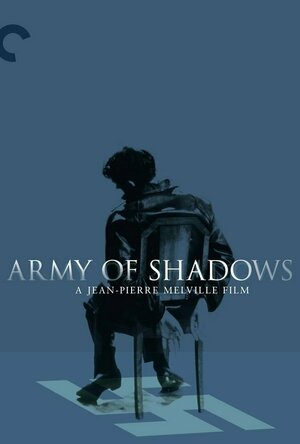Ross (3284 KP) rated Resistance in Books
Sep 20, 2018
Anaiya, one such peacekeeper, is tasked with finding and infiltrating a group of rebels who have started painting the word "resistance" on walls. In order to infiltrate them, she has to undergo a new untested treatment that tries to change her class from fire to air. Thereafter the tale is a pretty standard one of intrigue, plotting and red herrings.
For me the ideas behind the world were interesting, but not very well explained or explored early on. I realise with a book like this any attempt to do so would jar with the atmosphere it is trying to get at, but there are ways to deliver the information needed.
The storyline was pretty much paper-thin and sacrificed in order to have some lengthy, overly descriptive poetic narrative (for example at least 6 pages of the book is devoted to blow by blow accounts of pool matches). The supposed revelation at the end was such an obvious anti-climax as to be ridiculous. I took it to be a symbol of how Anaiya's treatment warped her judgement of who the main suspect is, but it was delivered as a big revelation.
The use of technology in sci-fi always annoys me - new tech that is not described and overly used, with a ridiculous name (a wristplate that can immediately tell you what substances are in your blood as well as heart rate etc, and also be used to download music, play music, communicate, pay for things etc etc).
Similarly, the plot to reveal the head of the resistance hinged on the use of some new technology invented by a member of the resistance itself. This was so flimsy as to be laughable. Also, the fact that a heavy-handed police force like the peacekeepers would look for such tenuous proof of the leadership of the resistance before acting is just plain wrong. The first few chapters, and some of the conversations Anaiya has after her change, serve to show how heavy-handed they are, and any hint of someone's involvement in such treasonous activity would result in swift action.
Overall, the book is atmospheric and interesting but quite badly executed.
And the word "trajectory" is massively overused and at times wrongly used.
Gareth von Kallenbach (980 KP) rated Call of Duty: WWII - The Resistance in Video Games
Jun 19, 2019
The Resistance keeps the usual theme of four new maps and a new episode for the Zombie series but this time does it with a bit of a twist.
Usually players see the name of the DLC in the Multiplayer menu and once selected; players can see the various modes available to play the new maps in.
Resistance does away with this and puts the content in the “Featured” area where players have to play either standard or Hardcore Mosh pits and experience the maps in a rotating selection of game modes vs picking a mode.
The three maps available are
Anthropoid
Based in Prague; this is a detailed map with a river, central bridge and lots of terrain to cover. Snipers will love the central area but those who want to run and gun can have some luck if they make sure to duck in and out of buildings.
Occupation
This is a remastered map set in Paris where multiple levels, side streets, shops, and vehicle littered streets allow for some great mid to close range combat. This is a fast-paced map where you can set an ambush, sneak up on enemies, or squad up to take the streets.
Valkyrie
If you like a nice run and gun mode based in bunkers; this is the mode for you. Inspired by the Eastern Front headquarters; this is a fast action map ideal for players of all styles.
The fourth map is only available in War mode and is Operation Intercept. Set in France, players need to set up communications, stop a train, and other team based missions.
The new Zombie mode is The Darkest Shore and pits the four heroes on a remote island where the Undead come fast and often. The map mixes bunkers, beaches, and emplacements with the usual weapon, armor, and power up stations and gameplay players got to expect in the original mission.
This time a think and concealing fog will roll in frequently which adds a new danger as you must fight the unending hordes with limited visibility.
Resistance provides more WW2 action for gamers and while it does not radically change the online portion of the game, it does offer some new wrinkles for fans to enjoy and should keep fans happy until the next DLC arrives.
http://sknr.net/2018/03/05/call-duty-ww2-resistance-dlc/

Essential Oils and Nanotechnology for Treatment of Microbial Diseases
Mahendra Rai, Susana Zacchino and Marcos Derita
Book
There has been emergence of multidrug resistance problem all over the world due to overuse or...
Kristin (149 KP) rated Titanium (Bionics, #2) in Books
Dec 7, 2018
Here we have the next installment following "Bionics," and it picks up right where the first left off: from Dax's point of view. I can't tell you how much I wanted to hear his thoughts and feelings after reading that epilogue!! He, Blythe, and Gage, along with the rest of the leading players, are gearing up to rescue the other Resistance members who were taken over by the MP's in the first installment. They plan a dual attack, one team heading to the prison where members are being kept in D.C., the others heading toward the Resistance stronghold in Tennessee. Blythe and Dax head to TN, and we see everything from Dax's perspective, from taking over as a leader to his feelings for Blythe and issues with Gage. This was such an awesome continuation of the series, and it leaves off with our characters in a very interesting situation..... =)
My favorite quote: "Loving her is like holding the stem of a rose tightly in your fist. The thorns might prick and tear my skin, but I can't let go because the beauty of the bud has me entranced."
Next up: Gage's POV, I can't wait!!!
5 stars
David McK (3705 KP) rated Hereward (Hereward, #1) in Books
Jan 30, 2019
While largely forgotten by history, many of Herewards exploits have later been subsumed into the many legends of Robin Hood - it is easy to see the parallels between the two characters and, as such, I thought that this could prove to be an interesting read.
Unfortunately, for me, much of the novel fell flat - I was never really drawn into it all that much; never really connected with any of the main characters. Starting in 1062, the novels takes place over a span of years (up to, and slightly beyond) The Battle of Hastings in 1066 with that battle (and Stamford bridge beforehand) largely glossed over - maybe only a chapter or two devoted to the both of them. Indeed, it was only in the last 70 pages or so - with the beginnings of the English resistance - that I began to be more drawn into the novel, by which stage it was too late.
While I may read the sequels, I'm not going to be looking for them.
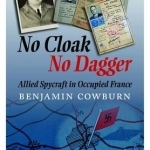
No Cloak, No Dagger: Allied Spycraft in Occupied France
Book
The memoir of SOE agent Benjamin Cowburn is rightly regarded as a classic of wartime literature. In...
Pat Healy recommended Army of Shadows (L'Armée des ombres) (1969) in Movies (curated)
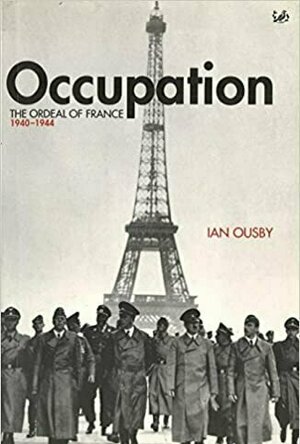
Occupation: The Ordeal of France 1940 - 1944
Book
The real story of the Occupation uncovers a reality more complex, more human and ultimately more...
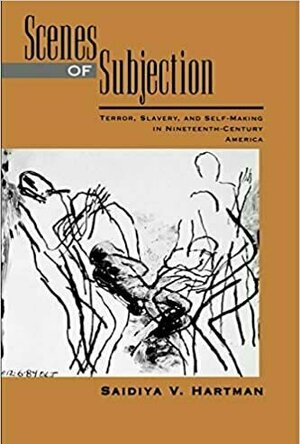
Scenes of Subjection: Terror, Slavery and Self-Making in Nineteenth-Century America
Book
In this provocative and original exploration of racial subjugation during slavery and its aftermath,...
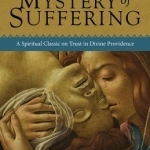
The Mystery of Suffering
Book
In this timeless classic first written in 1963, celebrated Benedictine monk, author, and sculptor...


